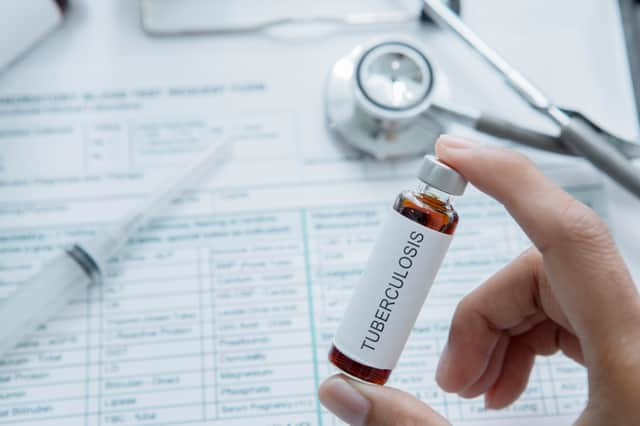Liverpool researchers join £155m project to tackle one of world’s most deadly disease - tuberculosis


The University of Liverpool is taking part in a £155 million research project to help fight against one of the world’s most deadly infectious diseases.
Academics from the city will join a European consortium of 30 partners from 13 countries including a number of other UK universities, who are seeking to shorten treatment time and tackle drug resistance to tuberculosis (TB).
Advertisement
Hide AdAdvertisement
Hide AdThe Liverpool researchers are preparing designs for clinical trials as part of a the seven-year project, called UNITE4TB.
The consortium is the biggest public-private collaboration on clinical TB drug development in the history of the European Union (EU).
TB affects around 10 million people worldwide annually which leads to 1.6 million deaths. The infectious disease still affects more than 5,000 people a year in the UK and approximately 50 to 60 people annually across Liverpool.
Brexit no barrier
Professor Gerry Davies, from the University of Liverpool’s department of clinical infection, microbiology and immunology praised the European collaboration.
Advertisement
Hide AdAdvertisement
Hide AdHe told LiverpoolWorld: “This project is extremely significant, there has been massive and sustained investment and it is being run by the EU.
“Liverpool and other UK partners are involved despite Brexit and the first clinical trials are due to start next year.”


Professor Davies said UNITE4TB would be “pioneering the fastest possible route to better, safer treatments for people with drug-resistant TB”.
Dr Pierre Meulien, IMI Executive Director, said: “Tuberculosis is a major threat to public health worldwide.
Advertisement
Hide AdAdvertisement
Hide Ad“By bringing together leading experts from the public and private sectors in Europe and beyond, UNITE4TB is well placed to deliver results that will accelerate the development of better treatment regimens to tackle this disease.”
What are the projects aims?
The project aims to speed up and improve the clinical evaluation of combinations of drugs, both existing and new, with the goal of developing new treatments for TB, including drug-resistant TB.
The research is expected to use state-of-the-art innovation including artificial intelligence.
Who is behind the project?
UNITE4TB is the newest project of the Innovative Medicines Initiative (IMI) AMR Accelerator, a public-private collaboration to progress the development of new medicines to fight resistant bacterial infections.
Advertisement
Hide AdAdvertisement
Hide AdIMI is funded jointly by the EU and the European pharmaceutical industry.
What is TB?
TB is a bacterial infection which is spread through droplets from the coughs or sneezes of an infected person.
It mainly affects the lungs, but it can impact any part of the body including the abdomen, glands, bones and nervous system. Although it has the potential to become fatal, it can be cured if treated correctly.
Parts of the world with high TB rates include sub-Saharan and west Africa, Russia, China and South America.
Liverpool’s credentials
Advertisement
Hide AdAdvertisement
Hide AdInstitutions in Liverpool have been working in the field of infectious diseases research for over a century.
The city is home to some of the world’s brightest minds in the field and has been at the centre of global pandemic research and science for many years.
The Pandemic Institute - a new headquarters offering “world-leading clinical research expertise” - was launched in Liverpool last month and the city hosts one of only five High Consequences Infectious Disease Units in the UK.